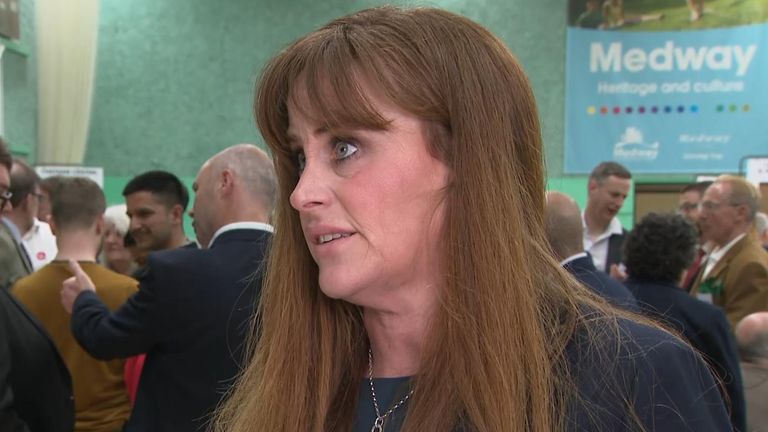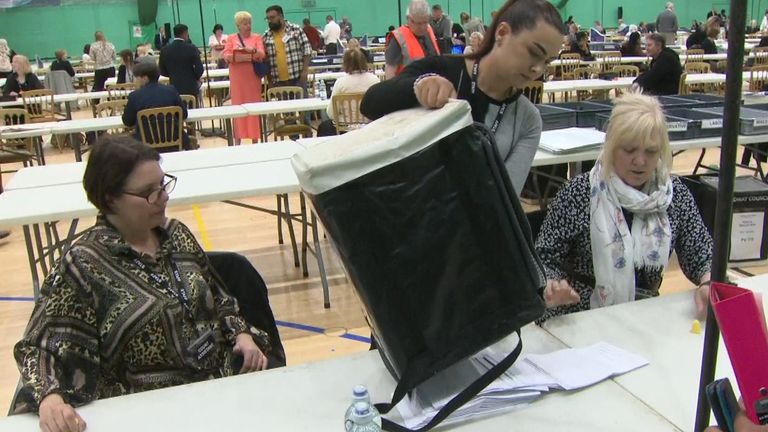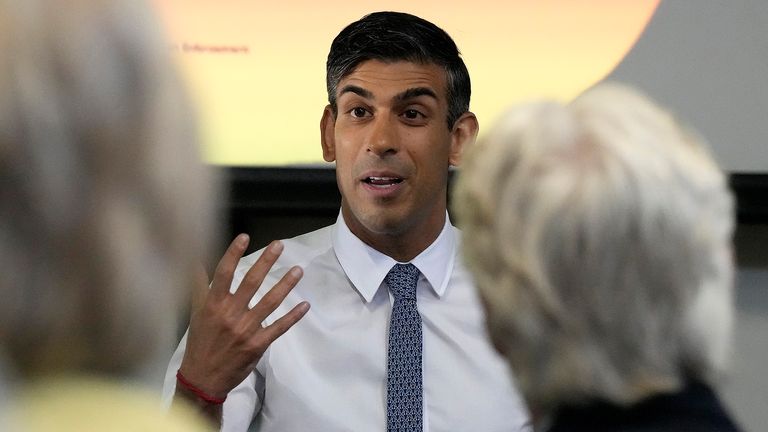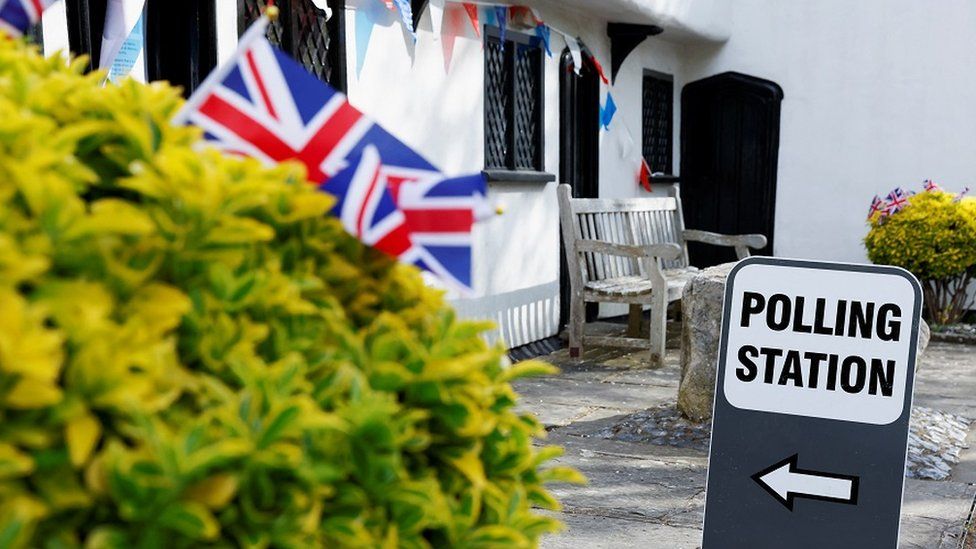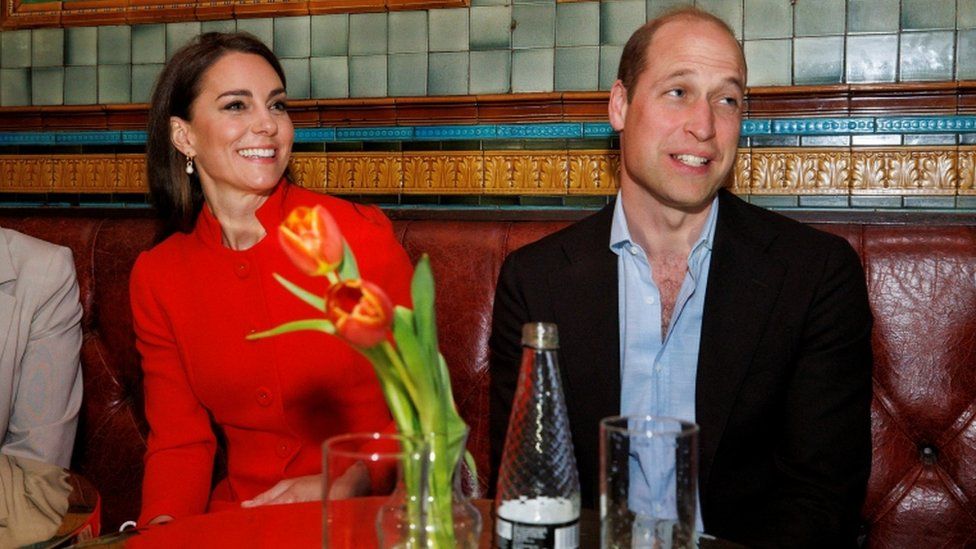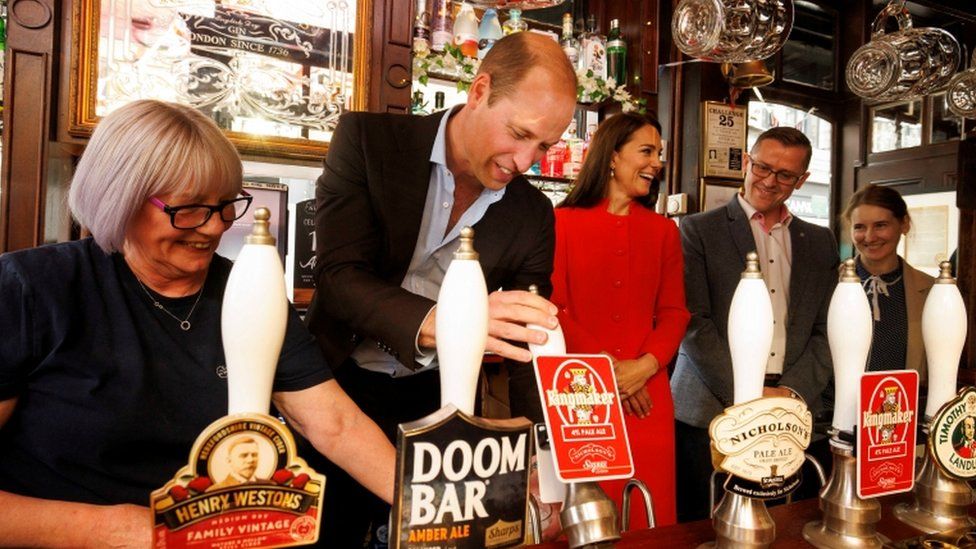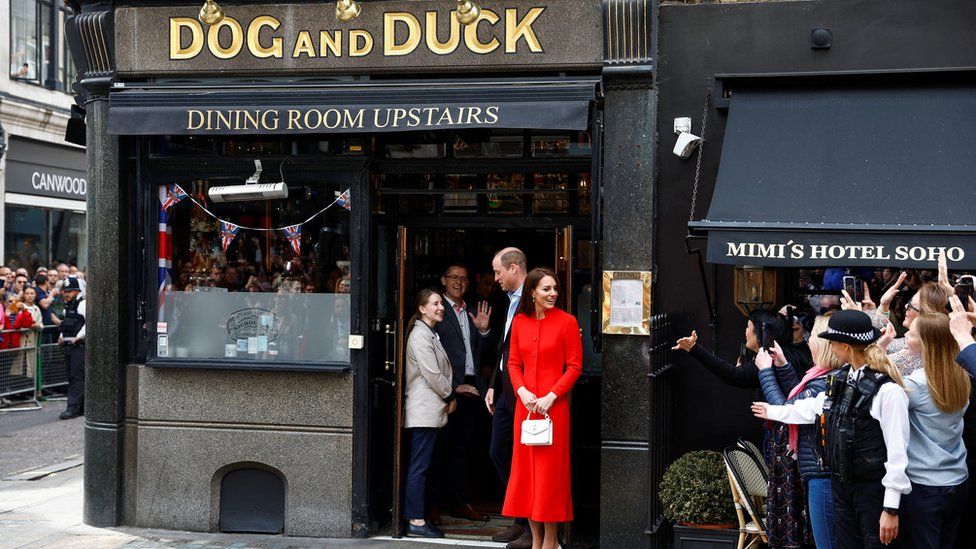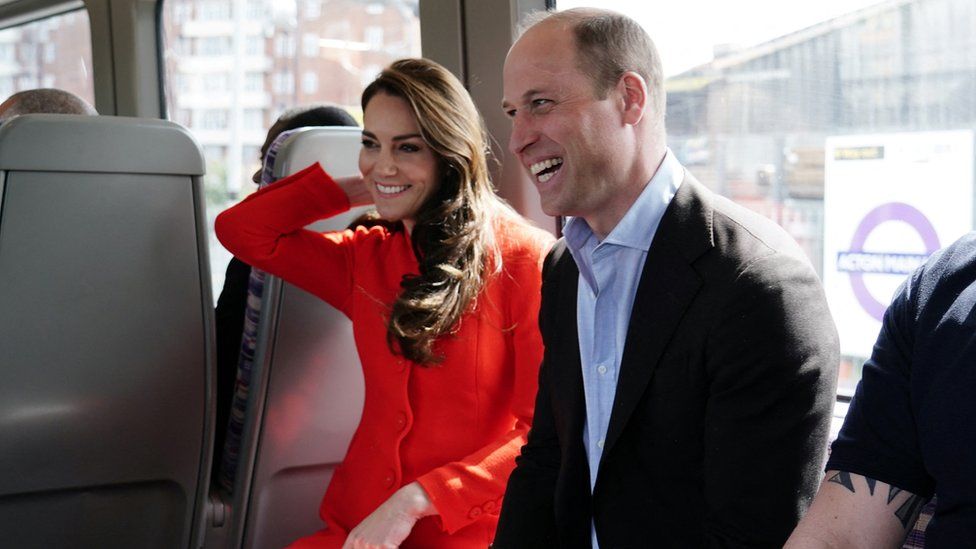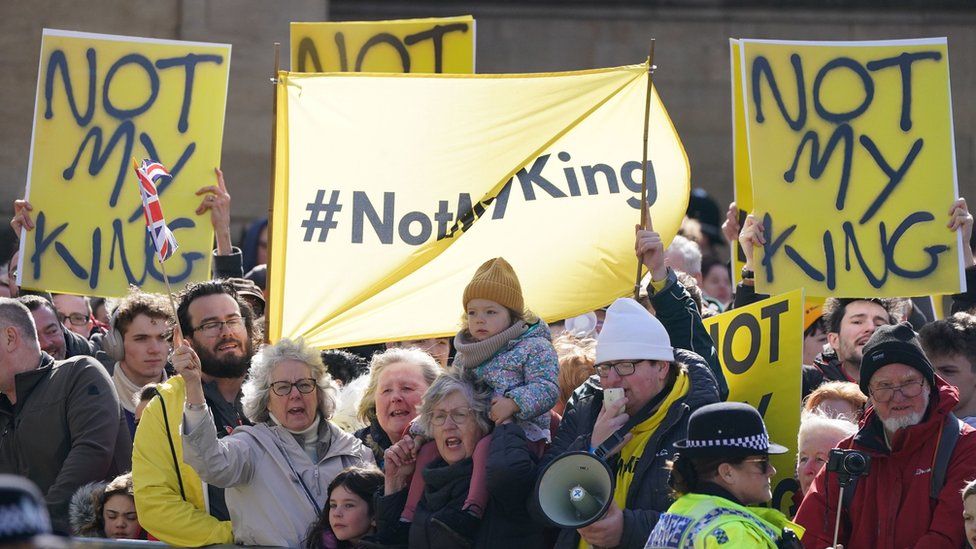The Conservatives have lost control of eight councils while Labour have gained three in early local election results.
As dawn broke, Sir Keir Starmer's party took Medway Council in Kent from the Conservatives, while the Liberal Democrats took Windsor and Maidenhead - former Prime Minister Theresa May's constituency.
Overnight, Labour also won Plymouth and Stoke-on-Trent from no overall control, while the Tories lost Tamworth, Brentwood, North West Leicestershire, Hertsmere and East Lindsey to no overall control.
The Tory losses continued on Friday morning, with the party losing South Kesteven in Lincolnshire to no overall control.
Labour - which also won the race for mayor of Middlesbrough - were performing best when it came to seat gains, clocking up over 90 so far, compared with the Conservatives, which have lost more than 140.
But all eyes are on the next few hours when more local authorities could change hands.
Politics live: Alarm bells' in Tory HQ as party takes 'hammering by any standards'
Voters went to the polls on Thursday to decide who runs services in 230 (out of 317) local authorities across England, with around 8,000 councillors' seats up for grabs.
Mayors are also being chosen in Bedford, Leicester and Mansfield in what is the biggest round of local elections since 2019.
It's also the largest test of public opinion this side of the next general election, and Labour's chance to capitalise on national polls suggesting it is on course to form the next government.
Labour MP and national campaign co-ordinator Shabana Mahmood said the results so far showed her party was "on course" to win a majority at the next election, adding: "We have spent the whole campaign talking about Labour's plan to tackle the Tory cost of living crisis which is the number one issue for voters.
"Rishi Sunak can't talk about it because the Tories crashed the economy and they don't know how to fix it. Tonight has been a disaster for Rishi Sunak as voters punish him for the Tories' failure."
Sunak: 'Disappointing' to lose councillors
But speaking outside the Conservative party headquarters on Friday morning, the prime minister said only a quarter of results had been declared so far and it's "hard to draw a firm conclusion".
He said it is always "disappointing" to lose "hard-working Conservative councillors" but insisted: "We're making progress in key election battlegrounds like Peterborough, Bassetlaw and Sandwell.
"I am not detecting any massive groundswell of movement to the Labour party or excitement about their agenda."
This was also the defence of Conservative party chairman Greg hands, who claimed the results were not a "uniformly good picture for Labour" and insisted the party was not on course for a Tony Blair-style victory at the next election.
He told Sky News that "clearly overall it's been a disappointing night" for the Tories.
But he added: "Equally there are areas that Labour need to win to show that they're making progress. And I don't think they are making the comprehensive progress that they need to make.
"The year before Tony Blair's win, Labour gained 1661 seats. The Conservatives lost more than 1900 seats. I don't think we're seeing anything like that from yesterday's results."
Read more: See full elections results as they come in
It is still early hours at the counts, with about a quarter of councils having declared their results by early Friday morning.
But Labour has shown sound gains when it comes to both seats and vote share in numerous areas, including Thurrock, Rushmoor and Redditch.
The majority of the councils which have confirmed their results so far only had a third of their seats on the ballot, meaning few authorities have changed hands.
The coming hours will see more councils with all their seats up for grabs - such as the areas that have seen major upsets so far - so a clearer idea of the parties' performances is yet to emerge.
Tory MP and government minister Johnny Mercer, who represents Plymouth, called it "a terrible night" in his constituency as "we lost every seat we stood in".
He added: "Take it on the chin, learn and go again tomorrow. It's going to be a fight but I like a fight."
Meanwhile, Baroness Anderson - a former Labour MP for Stoke-on-Trent - said the win in her area meant "everything" to the party.
She told Sky News: "It means that people are willing to listen to us again… I think it means they have forgiven us for having Jeremy Corbyn as leader… and candidly it means they are rejecting the policies of the Conservative Party, which is doing so little for them."
Elsewhere, the Liberal Democrats are showing early seat gains - currently up by 36.
'Ground-breaking night for Lib Dems'
Party leader Sir Ed Davey called it "a ground-breaking night" for the Lib Dems, and they had "delivered a hammer blow" to the so-called "Blue Wall" of Tory seats.
He added: "The message from voters is clear: they are sick to the back teeth of Rishi Sunak and his out-of-touch Conservative government."
The Green Party is also currently up by 13 seats.
The seats on offer were last contested in 2019, when Mrs May was weeks away from resigning, and her party lost 1,300 seats.
Labour, led by Jeremy Corbyn at the time, also suffered losses with the Lib Dems, Greens and independents coming off best.
Analysis: Is this a new dawn for Labour?
Sixty-two councils expect a result from midnight through to the morning.
More than half the 230 councils file their results in mid to late afternoon, while around 30 are expected to declare their results this evening.
There are no local elections in Scotland or Wales, but voters in Northern Ireland will be able to have their say on 18 May, with 462 seats across 11 local councils up for grabs.
This set of local elections was also the first time voters had to bring ID with them in order to cast their ballot.
After voting ended, the Electoral Commission said "overall, the elections were well run", but it would begin a fuller analysis to discover the impact.
Its spokesperson said the ID requirement "posed a greater challenge for some groups in society" and "some people were regrettably unable to vote today as a result" of the change.
Labour also raised concerns about the new law, with shadow health secretary Wes Streeting telling Sky News: "One eligible voter turned away and disenfranchised is one too many."
But Tory minister Chris Heaton-Harris called the voter ID requirement a "thoroughly good thing" as it "means that you can be completely sure that your elections are well tested and safe".
Here are the benchmarks from Sky News' elections analyst Professor Michael Thrasher for what would make a good and bad night for the main parties:
Conservatives
• Fewer than 300 losses: This would see the party winning council seats back from Independents, with Labour and the Lib Dems not prospering.
• 500 losses: The party could argue "mid-term blues" and will assume Labour could be caught before the general election.
• 750 losses: This would indicate a clear swing to Labour, but still less than opinion polls imply.
• 1,000 losses: A very bad night, with a third of all seats defended by the Conservatives lost.
Labour
• 700 gains: The best local elections for at least a decade. Labour would look on its way to becoming the largest party in Westminster, even if short of a majority.
• 450 gains: These results would be better than in 2022, when local elections took place in Greater London.
• 250 gains: A disappointing result for Labour in the context of recent opinion polls.
• Under 150 gains: A step backwards for Labour.
Liberal Democrats
• 150+ gains: Eating into Conservative territory and could put some marginal constituencies in play at the next election.
• 50-100 gains: Comfortable enough in their own heartlands but only modest further progress.
• Fewer than 50 gains: Fewer than 50 gains: Still struggling to pose a real threat to the Conservatives in the south.
Sky News will be bringing you full coverage both on TV and online.
https://news.google.com/rss/articles/CBMiowFodHRwczovL25ld3Muc2t5LmNvbS9zdG9yeS9sb2NhbC1lbGVjdGlvbnMtMjAyMy10b3JpZXMtbG9zZS1jb250cm9sLW9mLXRocmVlLWNvdW5jaWxzLWFzLWxhYm91ci1nYWlucy1rZXktYXV0aG9yaXR5LWFuZC13aW5zLW1heW9yYWwtcmFjZS1pbi1lYXJseS1yZXN1bHRzLTEyODczMzUy0gGnAWh0dHBzOi8vbmV3cy5za3kuY29tL3N0b3J5L2FtcC9sb2NhbC1lbGVjdGlvbnMtMjAyMy10b3JpZXMtbG9zZS1jb250cm9sLW9mLXRocmVlLWNvdW5jaWxzLWFzLWxhYm91ci1nYWlucy1rZXktYXV0aG9yaXR5LWFuZC13aW5zLW1heW9yYWwtcmFjZS1pbi1lYXJseS1yZXN1bHRzLTEyODczMzUy?oc=5
2023-05-05 07:06:30Z
1984317766

